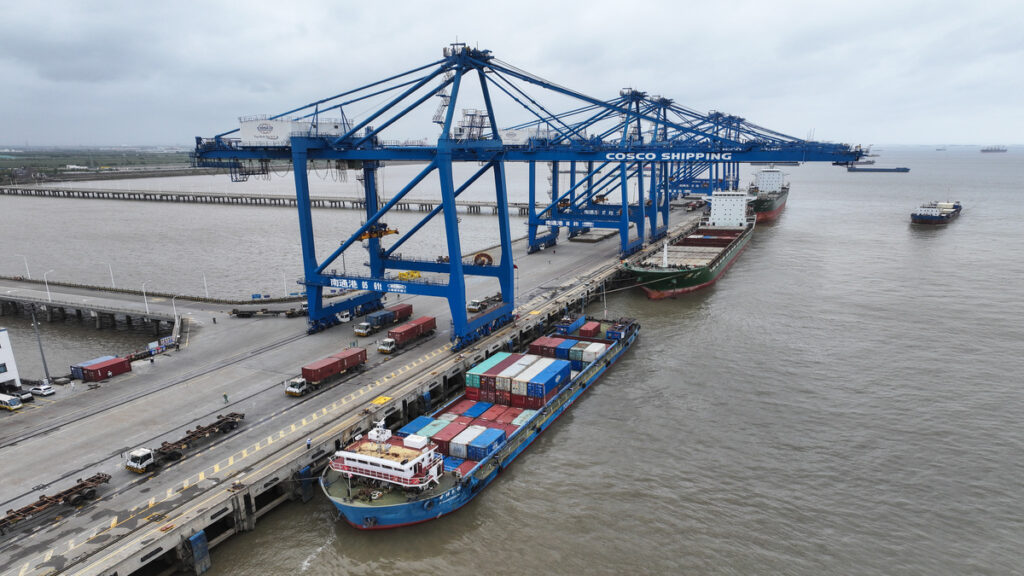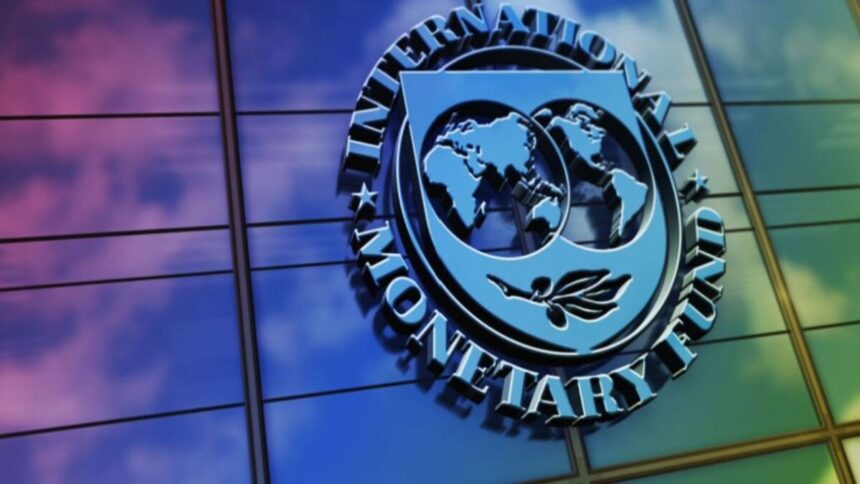The International Monetary Fund (IMF) recently released a report warning that trade tariffs proposed by US presidential candidate Donald Trump could adversely affect global growth. The IMF has also revised its economic prediction for the UK, predicting a growth rate of 1.1% this year, which is a significant rise from the prior estimate of 0.7%.
Trade Tariffs’ Effect on the World Economy
In its latest assessment, the IMF cautioned that the tariffs championed by Trump could lead to a series of retaliatory measures, igniting trade wars that could impoverish the economies involved and, ultimately, the global economy. The IMF noted a worrying trend: the number of trade-distorting measures has skyrocketed over the last five years, increasing from 1,000 in 2019 to approximately 3,000 today. Such measures often come from self-centered national policies that can backfire and harm the countries implementing them.

The IMF’s head economist, Pierre-Olivier Gourinchas, stressed that tariffs typically make the people of the nations that impose them poorer. He cautioned that if nations keep going in this direction, the world economy may suffer greatly.
IMF’s Global Growth Forecast
The IMF is nonetheless bullish about global growth in spite of these worries, predicting a pace of 3.2% for this year and the following. The group did, however, issue a warning that further tariffs that impact a significant amount of global commerce might lower global production by 1.3% in 2026 and 0.8% in 2025.
As Trump approaches the US elections on November 5, he has laid out plans for significant tariffs on imported goods, primarily targeting China, but also potentially affecting European Union imports. This approach has raised alarms among global economic leaders. For instance, Christine Lagarde, president of the European Central Bank, stressed that the US has historically thrived in periods of trade openness, not isolationism.
Positive Outlook for the UK Economy
The IMF has raised its growth estimate for the UK economy, indicating that it would expand by 1.1% this year. As Chancellor Rachel Reeves prepares to submit her first budget next week, this modification gives her a boost. A major improvement is shown in the update, especially for a nation that has recently suffered from economic stagnation.
The UK is predicted to increase by 1.5% in 2025, according to the IMF research, thanks to declining interest rates and inflation that are boosting domestic demand. Compared to other countries like Germany, which mostly rely on manufacturing, the UK’s service-oriented economy has done well this year.

Economic Challenges Ahead
Gourinchas said that although the IMF’s upgrade is positive, the UK and other countries have a “narrow path” to follow as they attempt to lower debt levels while promoting growth. He emphasized how crucial it is to make calculated financial decisions that strike a balance between the need for public investment and the high levels of debt.
There is cautious hope since the cost of living problem appears to have steadied and inflation has dropped. Inflation in the UK dropped to 1.7% in September, its lowest level in more than three years. It is anticipated that this decrease would result in more reductions in borrowing rates, which will benefit both enterprises and mortgage holders.
Chancellor Reeves’ Focus on Growth
While acknowledging that there is still more work to be done, Chancellor Reeves said he was pleased that the IMF has improved their growth projection for this year. She emphasized that improving public services like the NHS, taking care of working people, and supporting the economy will be the top priorities of the upcoming budget.
The UK is now anticipated to be among the G7’s three fastest growing economies, after the US and Canada. Next in line is France. As per the IMF, the UK’s growth rate remains below the global average of 3.2%.
Looking Forward: Balancing Growth and Fiscal Responsibility
As Chancellor Reeves prepares for her budget, she faces the challenging task of generating around £40 billion in tax rises and spending cuts to address a significant funding gap. Although the IMF’s projections are positive, they do not eliminate the necessity for tough fiscal decisions.
The IMF's World Economic Outlook report lowered next year's global growth forecast to 3.2%, down 0.1% from July's estimate, citing rising risks from debt, global conflicts, and trade protectionism. This year's projection remains unchanged at 3.2%. pic.twitter.com/DTutRkyf2K
— Facts and Statistics (@fact_analyst) October 22, 2024The report also emphasized the need for countries to stabilize their debt levels and rebuild fiscal buffers, particularly in light of high borrowing rates. Governments are urged to strike a balance between economic growth and fiscal responsibility to maintain market confidence.
There is some hope despite the IMF’s explicit warnings about the risks associated with trade tariffs, as seen by the UK’s improved growth estimate. It will be vital for the UK to concentrate on increasing domestic demand and controlling inflation while the world’s economy negotiate these difficulties. The next budget from Chancellor Reeves will be crucial in establishing the framework for a long-term economic recovery and guaranteeing that everyone benefits from prosperity.
Read More: Thriving Bull Market: Wall Street’s Bold Predictions for Stock Growth Ahead!






